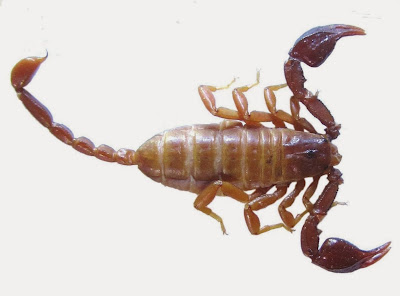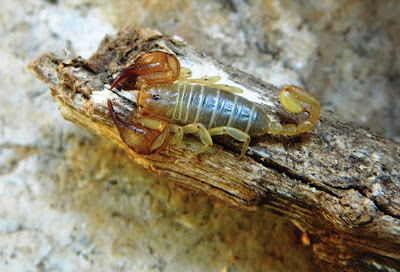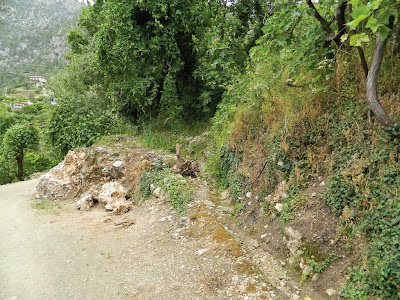
A new scorpion species from ancient Lycia
Scientists discover and describe a new species of scorpion, Euscorpius lycius, coming from the area of ancient Lycia, nowadays the regions of the Mugla and Antalya Provinces in Southwestern Turkey. With the new discovery, the scorpions from this genus found in the country go up to a total of five known species. The study was published in the open access journal ZooKeys.
 |
| This image shows a female Euscorpius lycius [Credit: Ersen Ayd?n Yagmur] |
Euscorpius is a genus of scorpions, commonly called small wood-scorpions. As their name suggest these scorpions don't impress with a large size, the biggest representative being around 5 cm long. The group is widespread in North Africa and across Europe. Euscorpius scorpions are relatively harmless, with poison that has effects similar to a mosquito bite.
 |
| This image shows a living male Euscorpius lycius in its natural environment [Credit: Ersen Ayd?n Yagmur] |
The new species is named after the historical region of Ancient Lycia, which is referenced in Egyptian and Ancient Greek myths. Like the mystical history of the region the new species is rather secretive and can be found mainly in pine at night hidden away in pine forests, crawling on rocks or sitting on stone garden walls. All localities where the species was found were humid and cool, with calcareous stones covered with moss.
 |
| This image shows the natural habitat of the new species near the Faralya Village, Turkey [Credit: Ersen Ayd?n Yagmur] |
The new scorpion is a relatively small representative, reaching a size ranging between two and two and a half centimeters. The color of the adult representatives is pale, between brown and reddish, with pedipalps, or claws, usually darker than the rest of the body.
"A total of 26 specimens belonging to the new species were collected from Antalya and Mugla Province, in the south-west of Turkey." explains Dr. Yagmur, the lead author of the study. "Further studies are in progress to understand the quantity and distribution of the different species and populations of the genus Euscorpius in Turkey and their relationship with the Greek populations."
Source: Pensoft Publishers [08-11-2013]
Elérhetőség
www.gazdtort.com
PTE BTK TTI Ókortörténeti TanszékH-7624 Pécs, Rókus u. 2.
+36-72-503600-23522